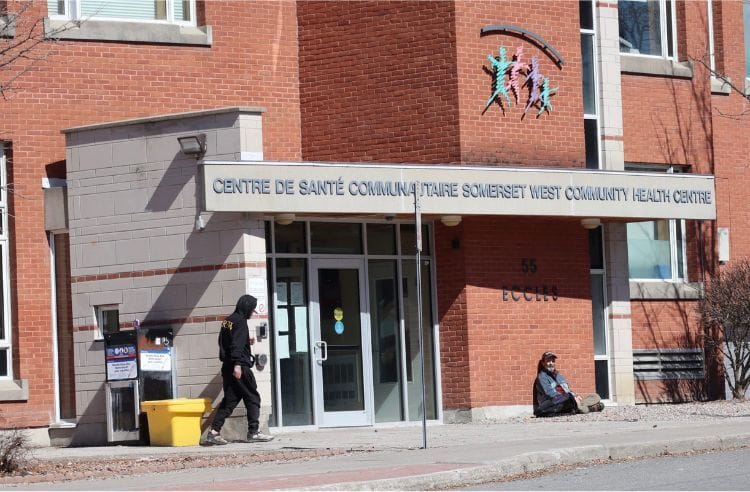There were mixed reactions when it was announced the Somerset West Community Health Centre’s safe consumption site would be forced to close because of new rules enacted by the province. The Chinatown business community celebrated the removal after dealing with increased crime in the neighbourhood. But harm reduction workers said the situation would only get worse.
Recently, a court injection said Somerset and eight other safe injection sites around the province could remain in operation, at least temporarily until a judge reviews a constitutional challenge of a provincial law that bans sites from operating within 200 metres of schools or daycares.
But all nine sites across Ontario have already closed and will become HART hubs (Homelessness and Addiction Recovery Treatment Hubs) instead.
“The nine transitioning HART hubs are opening April 1 as planned, ensuring the continuity of mental health support services when drug injection sites close on March 31," said Hannah Jensen, a spokeswoman for Health Minister Sylvia Jones, according to CBC. "All nine hubs have received startup funding and the ministry will continue to work with them to finalize their operational budgets by mid-April."
Suzanne Obiorah, Executive Director of the Somerset West Community Health Centre, said in a statement they were continuing with the closure because the provincial government made it clear they would no longer fund safe consumption sites and would withhold funding from groups that still operated, reported the Ottawa Citizen.
The transition will have both positives and negatives, note advocacy groups. The facilities will receive about four times the amount of funding as before, but supervised drug use will now be prohibited.
“Our consumption and treatment services allow people to come to our centre and use drugs under supervision. They can also connect to many other supports and services at the centre. If someone was at risk of or if they were to overdose, we can respond to that, and we could also do needle exchange,” Obiorah previously told the Kitchissippi Times before the Somerset closure. “This model is different in that clients are not able to use drugs, we are not able to do needle exchange, and we are not able to offer safer supply programs.”
One change is a new partnership to directly connect people to 24/7 supportive housing. At least 65 units were acquired for this.
In a press release the Ontario government said supports offered at the Somerset West site include mental health and addiction services available on-site; Basic needs support and stabilization; Addictions treatment bed-based services; Case management for housing; Integrated care planning and system navigation; Primary care services on site; and Mental health and addictions supportive housing.
Northwood Recovery moves into Somerset community
When Northwood Recovery opened an addictions treatment clinic in Hintonburg last fall, the community was quick to report open drug use and deals from the prescribed pills given to them. Security had to be stationed outside the building, and issues subsided.
But the damage was done and Northwood decided to close up shop and open a new location on Somerset Street. Its presence is hard to notice with only a small paper sign on the door, reported the Kitchissippi Times.
In her newsletter Somerset Coun. Ariel Troster criticized the provincial government for shutting down the Somerset West safe consumption site, and said the private clinic is trying to fill the gap. She noted the city doesn’t have the power to shut down Northwood, but is working to see if other agencies can provide wraparound support.
“The clinic itself has hired a security guard and a nurse and says they are actively committed to removing people from their programs if they engage in diversion of narcotics,” wrote Troster. “But they do not have the same resources as a community health centre, or the same structure that ensures accountability to local residents.“




